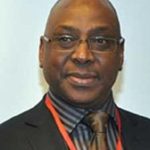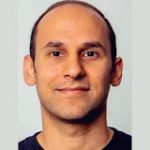...To get all news updates, Join our WhatsApp Group (Click Here)
Also Join our WhatsApp Channel (Click Here)
Former Power Minister Olu Agunloye on Thursday told the Apo Division of the FCT High Court that the attorney general of the federation did not give the Economic and Financial Crimes Commission (EFCC) the fiat to prosecute him.
EFCC is prosecuting Mr Agunloye, who served as a minister in the administration of former President Olusegun Obasanjo, on infractions regarding the Mambilla power plant.
The suit, marked FCT/HC/CR/617/22, is before Justice Jude Onwuegbuzie of the Mapo Division of the FCT High Court, Abuja.
The former minister was charged with a seven-count charge bordering on forgery, disobedience of presidential order and corruption.
He was alleged to have, among others, on May 22, 2003, awarded a contract titled “Construction of 3,960-megawatt Mambilla Hydroelectric Power Station on build, operate and transfer basis to Sunrise Power and Transmission Company Limited without any budgetary provision, approval and cash backing.”
The prosecution also alleged that it traced some suspicious payments from Sunrise Power and Transmission Company Limited to the former minister’s accounts. The defendant, however, pleaded not guilty to the charge preferred against him.
At the resumed hearing of the case, he moved his motion seeking the leave of the court to allow some legal luminaries to participate in the hearing of his preliminary objection against the EFCC.
The former minister, through his counsel, Adeola Adedipe SAN, told the court that, contrary to constitutional provisions, the AGF did not give the EFCC the fiat to investigate and institute proceedings in the case against him.
Mr Adedipe cited section 174 of the 1999 Constitution (as amended). He told the court that instead of getting such fiat from the AGF, EFCC got it from the solicitor-general of the federation.
He urged the court to take judicial notice under section 124 of the Evidence Act.
Mr Adedipe informed the court that the current AGF, Lateef Fagbemi, SAN, was sworn in on August 21, 2023, while the prosecution filed the charge against Mr Agunloye on September 7, 2023.
“The AGF did not give the EFCC fiat for the investigation. It was the solicitor-general of the federation who gave the EFCC fiat when he did not have such power under section 174 of the constitution (as amended); it is the exclusive reserve of the AGF (to do so).
“Granting the application to allow amici curiae (friends of the court), including the AGF; the president, Nigerian Bar Association (NBA), Yakubu Maikyau SAN; a former Minister of Justice, Chief Kanu Agabi SAN and a former NBA president, Joseph Daudu SAN to participate in the hearing of the said preliminary objection would not prejudice the court or EFCC,” he said.
It was curious, he said, that the commission did not want its principal, the AGF, to give support to the court in the application of justice.
He added that the reason for this was very clear since the anti-graft agency did not get his (AGF) fiat.
He told the court that since assuming office, the AGF had been giving directives that all corruption-related cases against public officers should be investigated by the Independent Corrupt Practices and Other Related Offences Commission (ICPC).
Mr Adedipe said this was in line with the decision of the Supreme Court in Nwobike vs FRN that delimits the power of EFCC to financial crimes alone.
Therefore, he urged the court to grant the application, saying that the prosecution was aware that the court had the power to grant it, which was why it did not want the court to grant it.
Responding, the prosecution counsel, Abba Mohammed, said the Supreme Court decided in FRN vs Osahor and others that the AGF’s power under section 174 of the constitution is not exclusive to him.
According to him, this implies that other authorities can initiate criminal proceedings in court. He added that in the instance case, the AGF did not complain that the EFCC usurped his power.
Mr Mohammed added that the Appeal Court had decided in Audu vs FRN that EFCC can prosecute offenders under the ICPC Act.
He urged the court to take judicial notice that the solicitor-general of the federation, who signed the fiat to prosecute the defendant, was the acting AGF as of August 8, 2023, as there was no substantive AGF then.
He said that at the last sitting in the case, the court did not raise any doubt that it could determine the defendant’s preliminary objection and, as such, did not express any need to invite any amici curiae.
The prosecution counsel urged the court to decline to grant the application as prayed by the defendant.
He submitted that the Supreme Court had clearly stated the situations under which the court can exercise its discretion in allowing amici curiae, which he said was only when the court was in doubt.
After listening to the parties’ submissions, Justice Jude Onwuegbuzie adjourned until April 15 to rule on the application.
(NAN)
You can get every of our news as soon as they drop on WhatsApp ...To get all news updates, Join our WhatsApp Group (Click Here)
Also Join our WhatsApp Channel (Click Here)

















